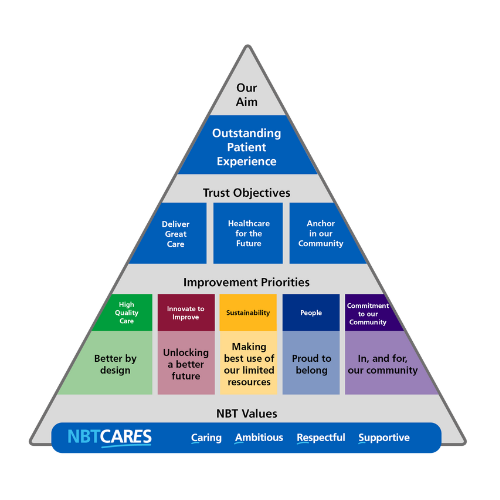Rheumatology Frequently Asked Questions
I’m having a flare of my arthritis, what should I do?
Flare-ups are the periodic increases in your usual amount of pain, which may last from a couple of hours to a couple of days or longer.
How you manage them can have a major influence on the impact they have on your overall quality of life.
It may be helpful to think of factors that may have added to your usual day to day pressures, as it is often an accumulation of factors that can cause a flare. It can be helpful to try and notice any triggers. Keeping a record of your daily activity and level of pain or fatigue can help with this. Have you done anything differently recently, or are you coping with any additional life events that feel quite stressful, worrying or distressing?
Think of what could be helpful to self-manage your flare. Some ideas include:
- Regular pain relief,
- Hot and cold treatment (such as wheat bags or ice packs)
- Pacing, prioritising, problem solving
- Keep active – keep gentle stretches going when possible
- Delegate or ask others for support
- Take time out for yourself
There is additional information on managing in a flare on the website.
If you have tried your flare up plan for two weeks and you are still struggling, please call the advice line to discuss your symptoms with one of the team. Further management strategies may involve changes or additions to your rheumatology medications, and / or a referral to another specialty in the team such as physiotherapy or occupational therapy.
It will be helpful to take a photo of your symptomatic joint (s) as sometimes flare ups ease when you are seen face to face.
It may be helpful for you to record your symptoms on the Living Well with Rheumatoid Arthritis app. We can see this information and then better advise you on how to manage your symptoms over time. Please call the advice line for us to enrol you.
If you find that one of your joints is hot and swollen, if you have a temperature or feel unwell please seek more urgent advice.
Side effects to medication
All medications can have potential side effects. It may also be worth considering other causes of symptoms, such as allergies (hay fever, known food intolerance) and new washing detergents.
Please see the film called ‘medications’ for further information. This is in the ‘information for newly diagnosed patients’ on the rheumatology website.
Here are some ways to help minimise potential side effects:
- Take your methotrexate at night time to minimise feelings of nausea
- Increase your folic acid to 6 out of 7 days to help with methotrexate side effects
- Ask about a tablet to protect your stomach if you are taking oral steroids for a long period or a non-steroidal anti-inflammatory (ibuprofen).
- If you are having side effects from sulfasalazine, and have just started this, it might help to increase your sulfasalazine dose at a slower rate. Please call the rheumatology advice line to discuss this.
To help minimise injection site reactions:
Injection site reactions are different to an allergic reaction they are generally mild and resolve after a few days. The symptoms can include mild swelling, itching, pain, redness, warmth, rash. To help with these symptoms some suggestions include:
- Please take injections out the fridge 30 minutes before use.
- Ensure you inject in the manner you have been taught by the nurses in your rheumatology team or home care provider.
- Use a cold pack before and after the injection
- Use pain relief such as a non-steroidal anti-inflammatory
- Take an Antihistamine
- Use over the counter hydrocortisone cream
If you feel you have side effects that have not responded to the above, or the reaction is larger than your fist, please call the advice line for further input.
If you have an all over body rash, chest tightness, severe itching, hives (fluid raised bumps), swelling of the lips, tongue or throat please seek urgent medical advice.
Stopping for surgery
If you are due to have a surgical procedure you should stop your biologic medication. Please check the current guidance on when to do this with the rheumatology advice line team, as different biologic medications have different time frames to stop.
In general you should not stop your disease modifying drug as we would like for you to have stable disease, this puts you in a better place to recover from your procedure.
Travelling with your fridge items
Some medications need to be kept in the fridge and only taken out shortly before the injection is due. This means you need to take precautions when travelling.
Keeping your medication cool
- Whilst travelling you can invest in a medications cool bag (such as ones made to transport diabetic medications).
- You need to take your medication in the cabin as the hold can be too cold.
- You can get a travel letter from your home delivery company (Sciensus, Lloyds pharmacy clinical homecare, Healthnet) which lets your airline know that you should be taking your injections on board a flight. Please let your home delivery company know in advance.
- When you are at your destination you need to make sure your items are kept in a cool, dark space to ensure the integrity of the drug.
- Please ensure you can dispose of your medication safely whilst travelling.
Vaccine information
Flu vaccines, are not live vaccines, and are recommended for those who are on disease modifying medication.
Should you need a live vaccine e.g. for travel reasons please contact the rheumatology advice line as live vaccines should not be administered if you are on disease modifying medication or biologic therapy.
Live vaccines include - Shingles, varicella (chicken pox), MMR, TB, oral polio, yellow fever, rotavirus.
Altered blood tests
If you are having blood tests to monitor your disease modifying medication your GP may contact us and you to get further advice, for example if your liver enzymes are higher than normal.
This can happen from time to time and is usually returns to within normal limits when blood tests are rechecked.
Sometimes the cause can be easily identified – such as a higher intake of alcohol than normal just before your blood test. Everyone is different and we may have different advice for different people regarding altered blood tests; within the Bristol, North Somerset and South Gloucestershire rheumatology departments we have guidelines in place to help with this process.
If your blood tests identified as being too high or too low:
- Please stop your medication and call the North Bristol Trust rheumatology advice line
- We will then make a plan to have further blood tests or investigations and make a plan to restart your mediation at a certain point.
Complementary and alternative medications
If you have any questions regarding over the counter supplements or herbal remedies and their place in your management plan, then please call the advice line to discuss this before taking them. Some of these therapies interact with other medications.
Biologic home delivery queries
If you have queries about you biologic delivery that has not been resolved by your delivery company then please call the advice line to see if we can help.
Patient Enquiries telephone:
Sciensus (Previously known as Healthcare At Home) : 0333 103 9499
Lloyds Pharmacy Clinical Homecare : 0345 263 6135
Healthnet: 0800 083 3060
Contact Rheumatology
Rheumatology Advice: rheumatologyadviceline@nbt.nhs.uk
DXA Scan Appointments: 0117 4147874





